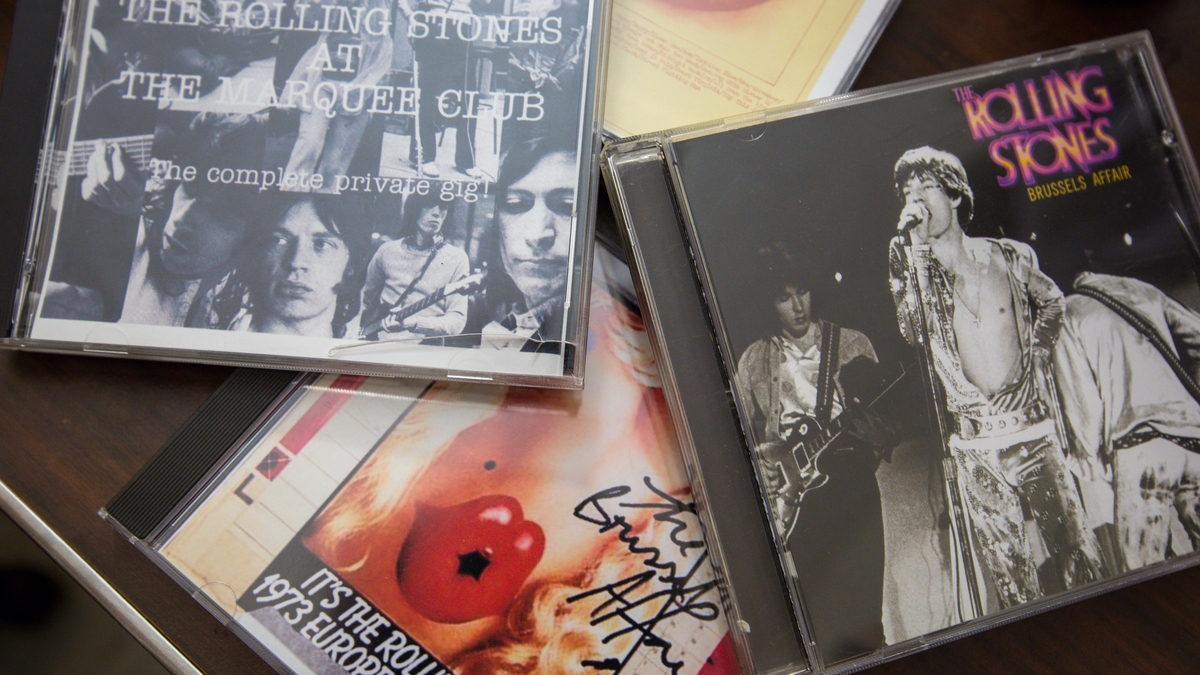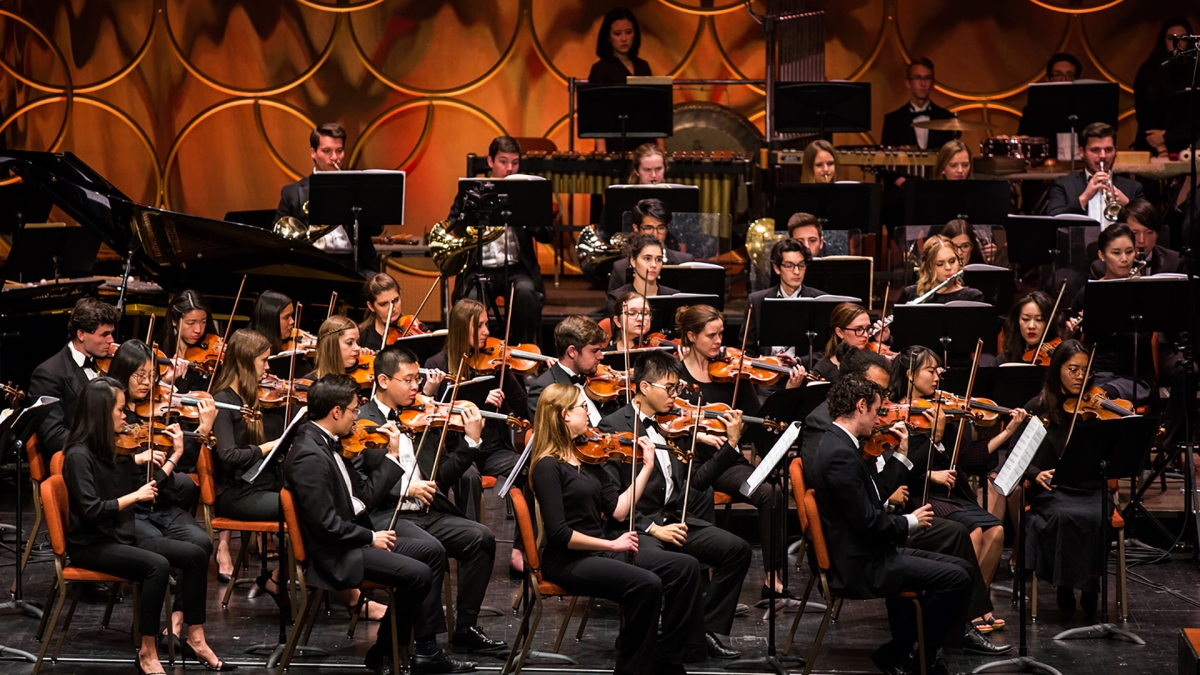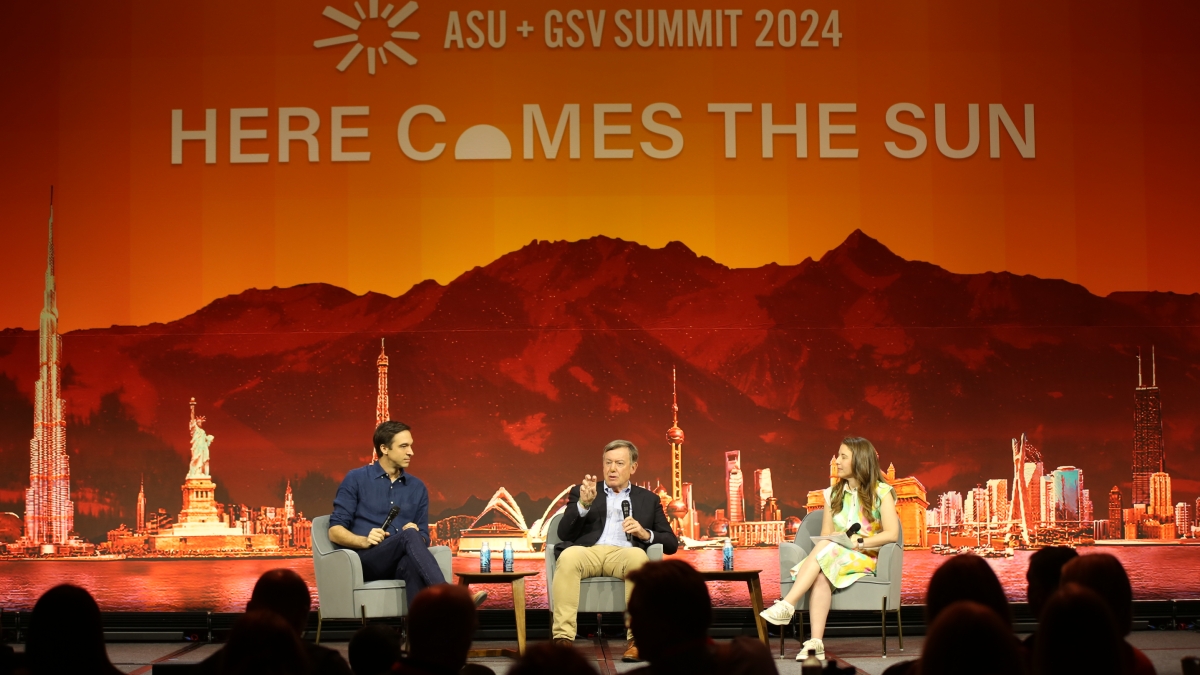Sympathy for the bootleggers
ASU lecturer chronicles Rolling Stones’ influence on the bootleg record phenomenon

Decades ago the word “bootleg” carried an outlaw connotation.
The contraband was usually kept beneath store counters and discreetly sold to known collectors in paper bags that hid the contents. Or it was ordered through the mail, sent from mysterious P.O. boxes in California or North Carolina.
But, in today’s online culture, the cloak-and-dagger routine has all but been erased.
People searching for unauthorized albums or live recordings of their favorite musicians are downloading and trading these bootlegs as casually as some folks send an email.
To paraphrase Bob Dylan — whose concerts have been a popular bootleg target — the times, they are a changin’; and in more ways than one.
Though they once resisted or condemned such bootlegs, big-name acts are now capitalizing on these once-illegal recordings by making them “official” and charging the fans a premium price. No one is putting this practice more into play than the “Greatest Rock and Roll Band in the World.”
Steve Farmer, a senior lecturer in Arizona State University’s Department of English,The Department of English is in the College of Liberal Arts and Sciences. has chronicled this phenomenon in an article he penned for the latest issue of Rock Music Studies, which commemorates the 50th anniversaryFarmer says because “the wheels of academia sometimes turns slowly,” 2015 marks the 53rd anniversary of the legendary group. of the Rolling Stones.
“I teach Victorian literature, and I was able to take a real pop-culture interest of mine and make it work in academia,” said Farmer, who has followed the British group since he was 12 years old.
“The research was fun. When the call for papers came in, the natural pull would have been to write a generational piece. I wanted to take this in a different direction.”
“Googling With the Stones: The Greatest Rock and Roll Corporation in the World and the Mainstreaming of Bootleg Recordings” takes a look at how the record bootlegging industry — from the sellers to the collectors of Rolling Stones recordings in particular — came into being, took root and evolved over the years, and then exploring how the Stones have responded to this universe of bootlegs, both as individual musicians and as a sprawling corporate entity.
According to Farmer, the relationship between the Stones and bootleggers commenced on Nov. 9, 1969, when a shadowy but colorful figure known as “Dub” Taylor smuggled a portable Uher 4000 reel-to-reel tape recorder into the Oakland Coliseum. Taylor stood among the thousands of concertgoers and recorded both Stones appearances — an afternoon and an evening show.
“I actually looked up the model of the reel-to-reel and while portable, it was still bulky. It’s the size of a boom box,” Farmer said with a laugh. “You couldn’t get that thing through security in today’s world.”

ASU senior lecturer Steve Farmer sits in his office as he talks about his hobby of collecting authorized bootleg copies of Rolling Stones music and concerts.
Photos by Charlie Leight/ASU Now
The Stones endured technical difficulties throughout the first show, but it was Taylor’s high-quality, stereo recording of the evening gig that was released almost a month later as “LIVEr Than You’ll Ever Be” on the Trade Mark of Quality label. It was the same label that was also responsible for the first unauthorized rock bootleg, “Great White Wonder,” Many of the songs on this bootleg were later released in 1975 as Bob Dylan and the Band’s “Basement Tapes.”which pioneered the rock-and-roll bootleg business six months earlier.
“LIVEr Than You’ll Ever Be” became a cultural sensation and was even reviewed by esteemed rock critic Griel Marcus in the Feb. 7, 1970, issue of Rolling Stone. Mick Jagger addressed the illegal album and stated to a Danish radio host that he not only liked bootlegging but encouraged it because he didn’t “like capitalist record companies. I just don’t like them, and if anyone has got any other ideas to distribute records, I’m fine.”
Decca Records, who distributed the Stones' catalog at that time, didn’t necessarily agree with Jagger’s viewpoint. To stem the tide of further bootlegs and in response to “LIVEr Than You’ll Ever Be,” Decca issued “Get Yer Ya Yas Out,” the official live album of the same tour in September 1970.
But the damage had already been done. That and Jagger’s hearty endorsement of illegal recordings, Farmer believes, was the singer’s way of “sticking it to the man.” It also opened the bootleg floodgates.
“It’s the bootleggers way of saying, ‘We have his blessing,’ ” Farmer said. “Later on, Jagger’s attitude changed.”
Throughout the 1970s, the creation of bootleg records became a cottage industry, and sellers were brazen enough to take out ads in the classified sections of Rolling Stone and Goldmine magazines — advertising their goods as “rare imports.” As the bootleg industry became more competitive, it also became more consumer-oriented. The plain-sleeved and rubber-stamped covers of the early bootleg years were replaced by eye-catching laminated covers and a rainbow of colored vinyl. Inserts like posters, postcards and limited-edition runs often sounded the siren call for all collectors.
Farmer said perceived threats to the industry’s wellbeing had caused the U.S. music industry to lobby hard for the Sound Recording Act of 1971, which allowed federal copyright protection to “extended and actual music performances.” A 1979 civil suit in a California federal court brought on by CBS and Bruce Springsteen against bootleg label Vicky Vinyl resulted in a $2.1 million judgment for “The Boss.” The judgment sent a shockwave of fear through the bootleg industry, and after the FBI and Royal Mounted Canadian Police conducted more than 150 raids in America and Canada, bootleggers shifted production from North America to Europe, Asia and Australia.
“I hate to be disparaging of the Rolling Stones because they were my gods, but it’s an easy cash grab for them.”
— ASU English lecturer Steve Farmer
As the record industry made the conversion from analog to digital in the early to mid-80s, Farmer said bootleggers happily embraced the change.
"One could say that CDs were easier to hide, easier to store, easier to ship and cheaper to produce,” Farmer said. “The sound quality was superior, and the fact that it wouldn’t deteriorate with play was an easy way to seduce the buyer to make the switch.”
Buyers were also willing to shell out big bucks to see their idols live in concert. The Stones' embracing of corporate partnerships would bring in huge sums of money, which eluded them the first half of their career. Their 1989-90 Steel Wheels/Urban Jungle tour, sponsored by Budweiser, changed all that. The tour eventually grossed $170 million, giving the group the largest payday of its career up to that point.
It was the beginning and the end of a Stones era. Gone were the days of a $6.50 ticket, which was the price Farmer paid to see them in 1972.
The windfall, Farmer believes, shifted the band’s focus away from making art to the business of making money. Since that ’89 tour the Stones have embarked on almost 10 world tours — each subsequent one topping the next, at least financially — but have only produced three albums' worth of original material in a quarter-century.
And that’s where those old bootlegs come back into play, Farmer said. Since 2010, the Stones began packaging and releasing their old bootlegs on CD, DVD and as digital downloads, charging fans a premium to purchase them. In the span of five years, they’ve issued about a dozen releases, rendering at least 100 bootleg albums all but obsolete.
“I hate to be disparaging of the Rolling Stones because they were my gods, but it’s an easy cash grab for them,” Farmer said. “Somebody in their camp must have said, ‘Let’s clean up these old bootlegs and “boutique” them.’ ”
Farmer said even though he’s objective about the Stones’ attitude when it comes to money, he’s an easy target when it comes to official bootlegs.
“There’s a new recording out from 1970 called ‘Get Your Live Leeds Lungs Out!’ and it’s been available as a bootleg for many years but recently it was repackaged with their classic album ‘Sticky Fingers’ for $150,” Farmer said. “Historically the first two songs of the ‘Leeds’ concert has been missing but with this album, which is a deluxe package, included the full show. Now, I don’t need another copy of ‘Sticky Fingers,’ but I sure wanted those two songs. And so I bought it.”
Farmer sees the Stones as “corporatists” and smart business people, estimating they are now a billion-dollar band. He does not begrudge them or their partners for co-opting a bootleg industry that some have argued has cost them a bundle over the years.
Still, Farmer and other music fans miss those old days when locating a rare bootleg of a favorite band felt like a slightly taboo act yielding a rare perspective.
And as Jagger still sings — at $700 a ticket — “You can’t always get what you want.”
More Arts, humanities and education

ASU Symphony Orchestra welcomes visionary conductor Jonathan Taylor Rush
Guest conductor Jonathan Taylor Rush will join Arizona State University’s Jason Caslor, director of bands, to lead the ASU Symphony Orchestra in their final concert of the season, “Trailblazers,” on…

Chemistry classes are key to art student's success
Amanda Barnette has a passion for art preservation. That means that, for the past four years, the Arizona State University student’s schedule was filled with classes that fit her artistic bent:…

ASU+GSV Summit tackles big questions about AI, technology, education
Editor's note: We'll be updating this story daily throughout the summit. The annual ASU+GSV Summit kicked off in San Diego on Sunday, drawing thousands of leaders for a four-day event that focuses…